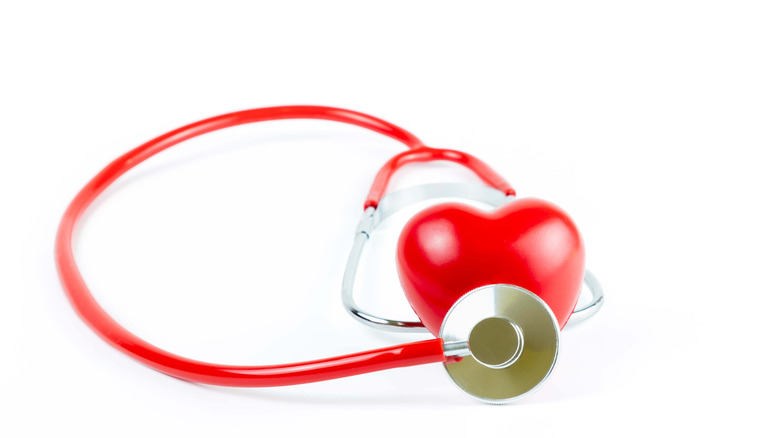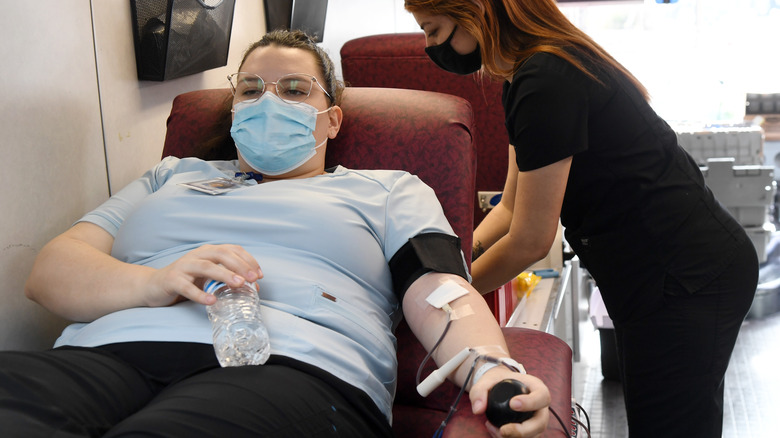Surprising Side Effects Of Donating Blood
Donating blood is a great thing for the people and healthcare providers in your community. It shores up the supplies of this vital resource, and saves lives in emergency situations. But it actually has positive benefits for the person who donates too, both mental and physical.
When you donate blood, you receive a health screening for free at the donation center, according to Medical News Today. Staff will test your blood pressure, temperature, pulse, and hemoglobin levels to ensure it is safe for you to donate. This simple procedure can alert you to any developing or unknown conditions that you need to have checked out by your regular provider.
Your body contains about 10 pints of blood, according to donation organization OneBlood.org. When you donate you give one pint at a time. It takes several weeks for your body to recreate that pint of blood, but you shouldn't notice its absence at all. In fact, the process of making new blood is good for the body and the heart, according to a study published in the American Journal of Epidemiology. Research found that regular blood donors are 88 percent less likely to suffer a heart attack. This may be because the newer blood is thinner, which puts less strain on blood vessels.
High levels of iron in the body can also present a risk to blood vessels, and regular donation helps the body modulate iron levels.
Ill effects should be mild and short-lived
When you donate, there may be some short-lived side effects to be aware of. It's common to experience bruising at the puncture site, and perhaps some pain or swelling, according to Medical News Today. There may be a slight bit of bleeding from the needle injection site. To prevent this, keep the bandage applied at the donation site on for at least four hours after you donate.
You may feel a bit fatigued, lightheaded, dizzy, or nauseous following donation. This is the result of a temporary drop in your blood pressure, which is normal. Avoid strenuous activity for the rest of the day and be sure to drink plenty of water. Don't drink alcohol for 24 hours after donating, and eat an iron-rich diet. That includes foods like beef, turkey, spinach, sweet potatoes, beans, broccoli, and shrimp.
People with any blood type, A, B, AB, or O, can donate but O is the most needed, because their blood can be matched with a person with any other blood type, according to Healthline. If you don't know your blood type, your local donation center will tell you when you donate.


